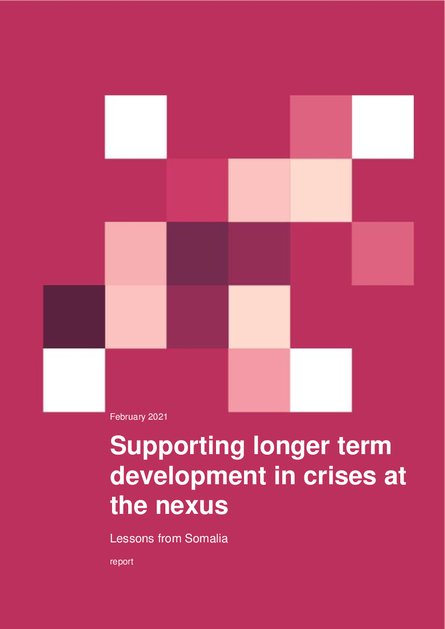
This Somalia country report is the second in a series examining the role of development actors in addressing people’s longer term needs, risks and vulnerabilities, and supporting operationalisation of the humanitarian–development–peace (HDP) nexus.
This Somalia country report contributes to a multi-country study focusing on the role of development actors in addressing people’s longer term needs, risks and vulnerabilities and supporting operationalisation of the humanitarian–development–peace (HDP) nexus. This is pertinent to the Covid-19 response, involving both immediate lifesaving assistance and longer term support for health systems, socioeconomic impacts and peacebuilding.
This report aims to improve understanding of how development actors operate in Somalia and their current and potential role in addressing the longer term needs, risks and vulnerabilities of crisis-affected populations. It explores the extent to which development actors work alongside or in complementarity with humanitarian and peace actors at the strategic, programmatic and institutional levels. It identifies examples of good practice, lessons and recommendations for how development assistance can better prevent and respond to crisis situations and support the delivery of the HDP nexus agenda, both within Somalia and globally. This report is based on desk research and key informant interviews with actors working in Somalia at local, national and international levels.
